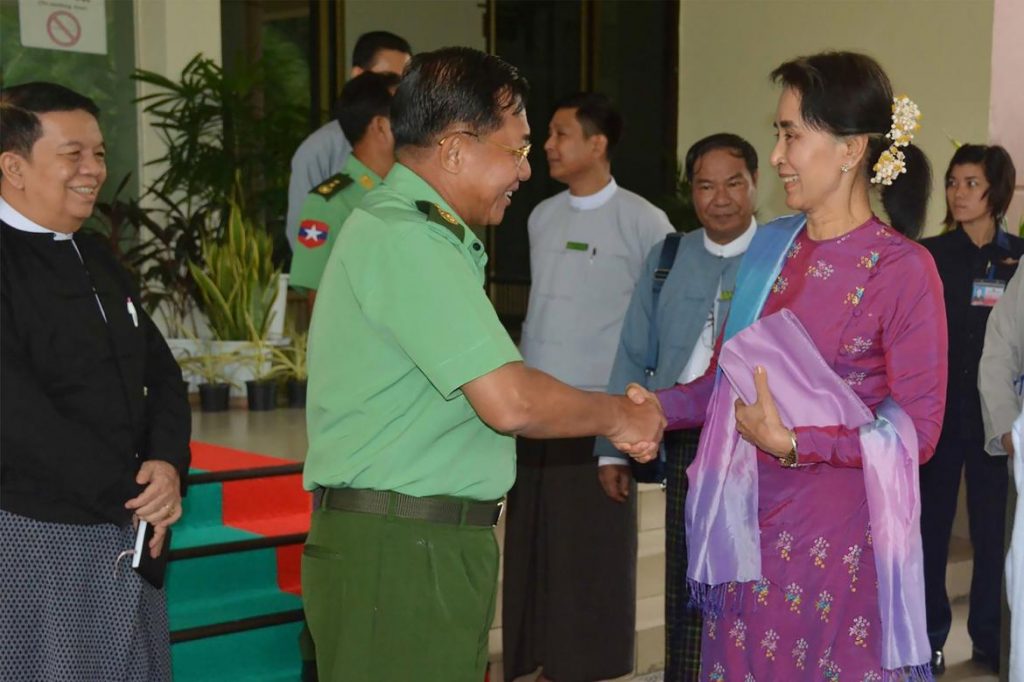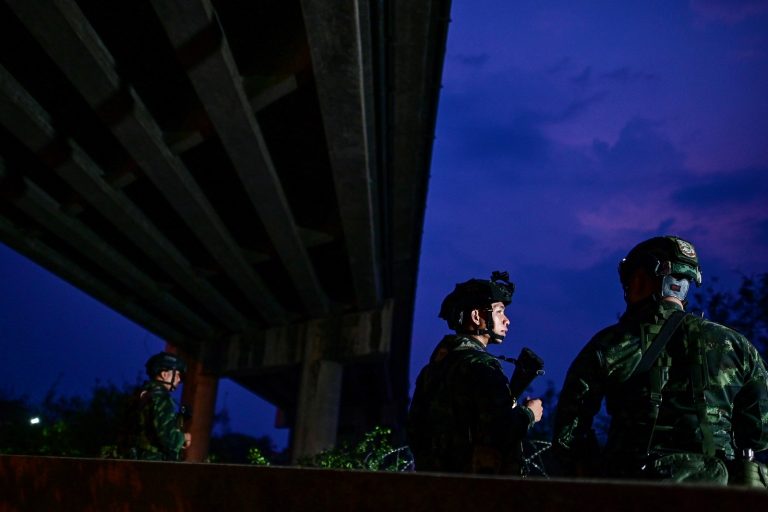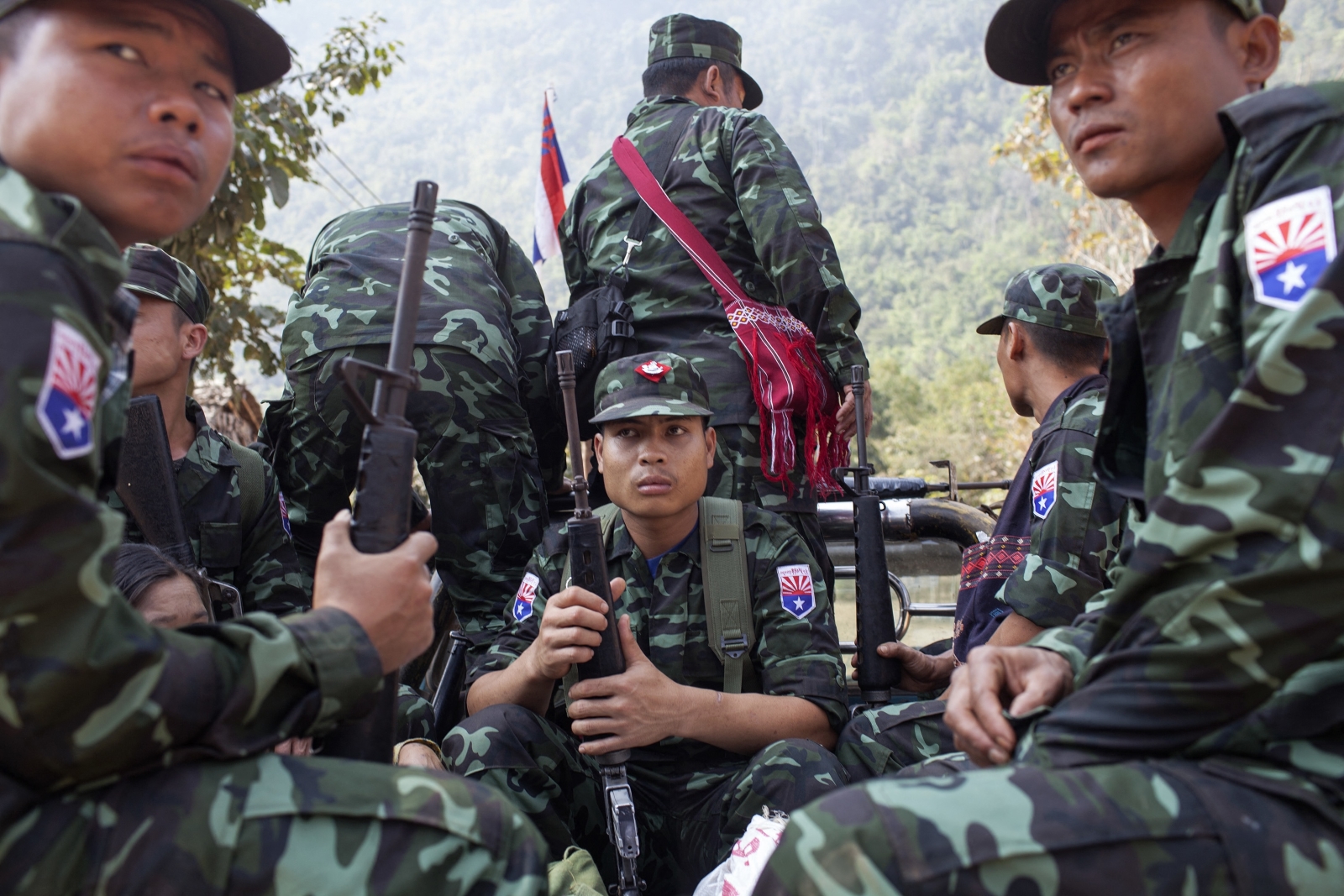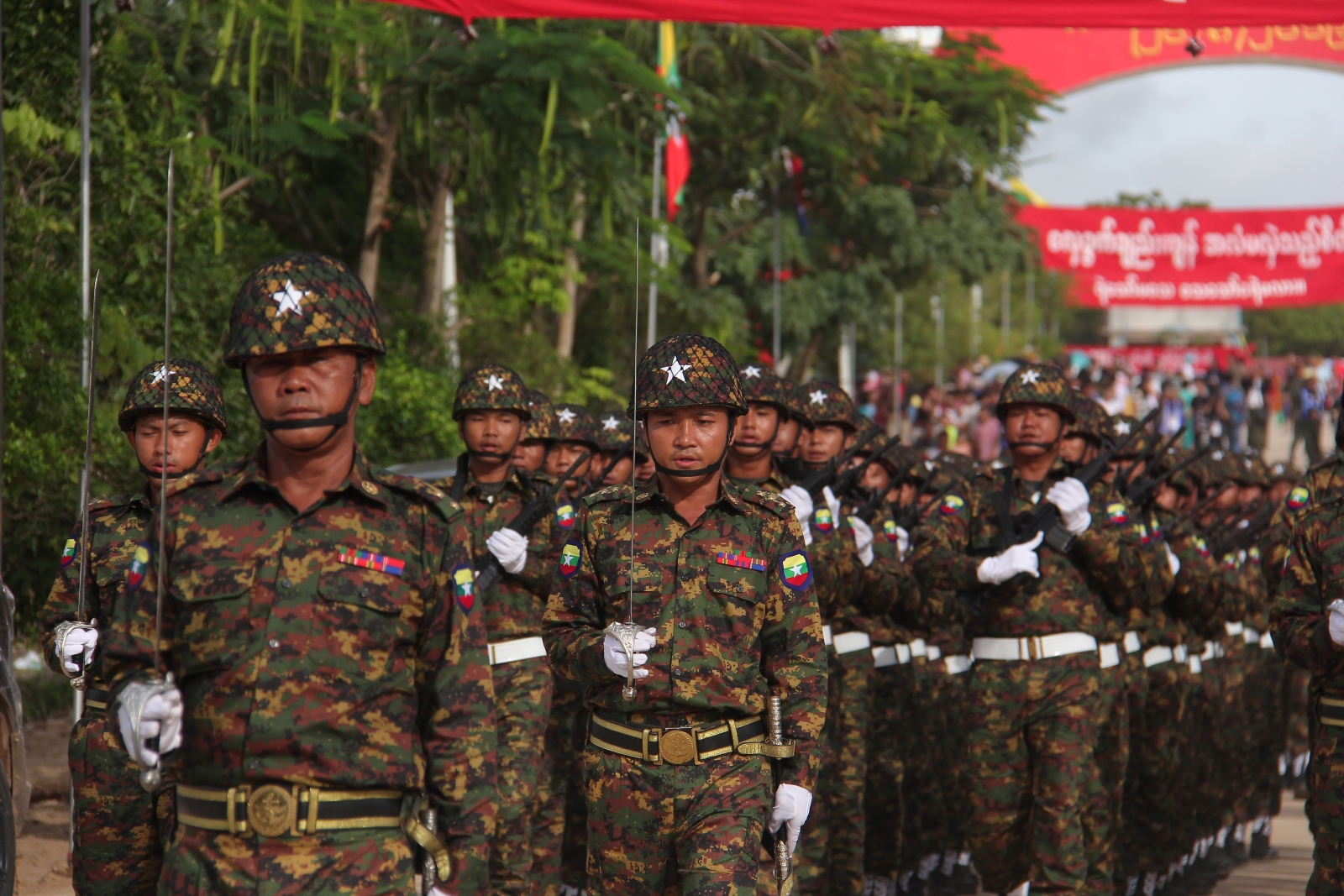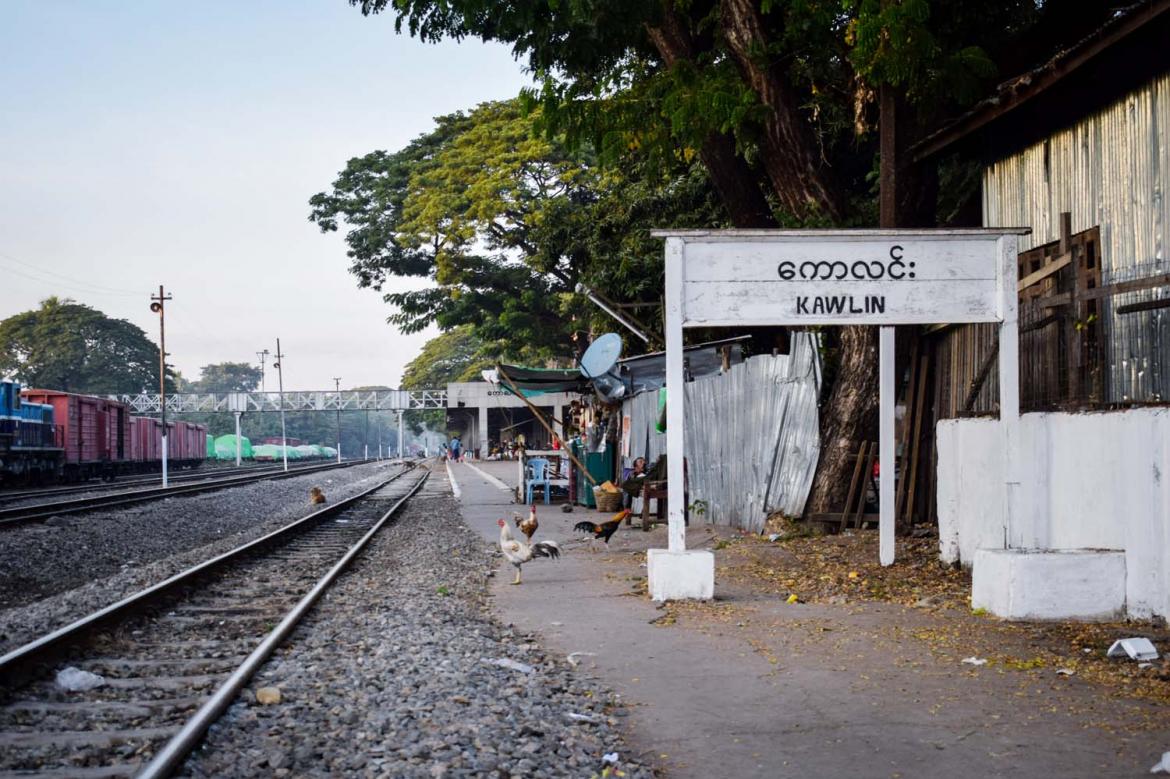Some ethnic groups have criticised State Counsellor Daw Aung San Suu Kyi over the perception that she favours the Tatmadaw but the record shows that she and the NLD have been impartial in the pursuit of peace.
By SITHU AUNG MYINT | FRONTIER
THE CEREMONIES in Nay Pyi Taw on Independence Day, January 4, included an event to honour soldiers who have served their nation with distinction.
President U Htin Kyaw conferred honorific titles for bravery on 15 soldiers. Some of the titles were awarded posthumously. Media reports said the soldiers had won the awards for bravery in action against ethnic armed groups.
Some ethnic rights activists and civil society groups were critical of Htin Kyaw for conferring the titles, saying that as a president elected by the people, he should not honour soldiers who have fought ethnic armed groups.
They said participating in the event meant that he stood for the Tatmadaw in the fighting between it and armed ethnic groups, and could hamper the peace process led by State Counsellor Daw Aung San Suu Kyi.
Support more independent journalism like this. Sign up to be a Frontier member.
This has come amid regular allegations from some quarters that Aung San Suu Kyi is partial toward the Tatmadaw.
Questions were raised over the State Counsellor’s impartiality after the Kachin Independence Army and its Northern Alliance allies launched their surprise attacks in and around the border trading town of Muse in northeastern Shan State last November.
Aung San Suu Kyi urged the Tatmadaw to defend lives and property and to stabilise the situation. Her response led to criticism from some ethnic leaders and civil society groups.
They said she had remained silent when the Tatmadaw launched offensives against ethnic armed groups in the months leading up to their offensive.
It has become common for prominent members of ethnic armed groups, such as the KIA, to say that the National League for Democracy government is not neutral when there is conflict between the Tatmadaw and ethnic armed groups, or that it stands with the Tatmadaw.
Aung San Suu Kyi’s policy for achieving peace has two phases. The first concerns the step-by-step process for achieving peace. The focus of the second is the creation of a federal democratic Union.
The first step of the first phase is a ceasefire. The second phase involves the discussion of political issues at an inclusive 21st Century Panglong – Union Peace Conference.
The agreement to emerge from the conference will be approved by the Union Parliament and pave the way for the constitutional amendments needed to establish a federal democratic Union.
According to this roadmap, all ethnic armed groups must become signatories of the Nationwide Ceasefire Agreement that was signed in October 2015 by eight groups, about half the number involved in negotiations on the truce.
On the question of an inclusive NCA, the previous administration of President U Thein Sein, the Tatmadaw and the NLD government are in agreement.
However, the KIA believes that there is no need for it to sign the NCA, arguing that when political problems are resolved, the fighting will automatically stop. Another large ethnic armed group, the United Wa State Army, has a similar attitude.
Aung San Suu Kyi and the Tatmadaw have agreed that after an inclusive NCA is achieved, the next step will be to negotiate political issues at the peace conference.
The KIA seems to want to participate in political negotiations without signing the NCA. The UWSA wants bilateral negotiations with the government on its demands and it does not seem to be interested in taking part in the peace conference.
A key issue is the role of the Tatmadaw in a federal democratic Union. Aung San Suu Kyi wants the Tatmadaw to be responsible only for national defence and security and to relinquish its role in politics.
On this, all ethnic minorities support the NLD. But the attitude of the Tatmadaw is different.
Another issue is the decentralisation of power in a future federal democratic Union, in which Aung San Suu Kyi envisages that every state and region will have its own government, elected by the local people.
This doesn’t mean that the KIA will rule Kachin State or the Karen National Union Kayin State, so Aung San Suu Kyi and the ethnic armed groups may face some disagreements over the issue.
When there is civil conflict, Aung San Suu Kyi and the NLD do not always stand for the Tatmadaw. They agree with it in some cases and disagree in others. Similarly, the NLD and armed ethnic groups agree on some issues and disagree on others.
Aung San Suu Kyi and the NLD are not partial toward any stakeholder in the pursuit of peace and national reconciliation in Myanmar.


